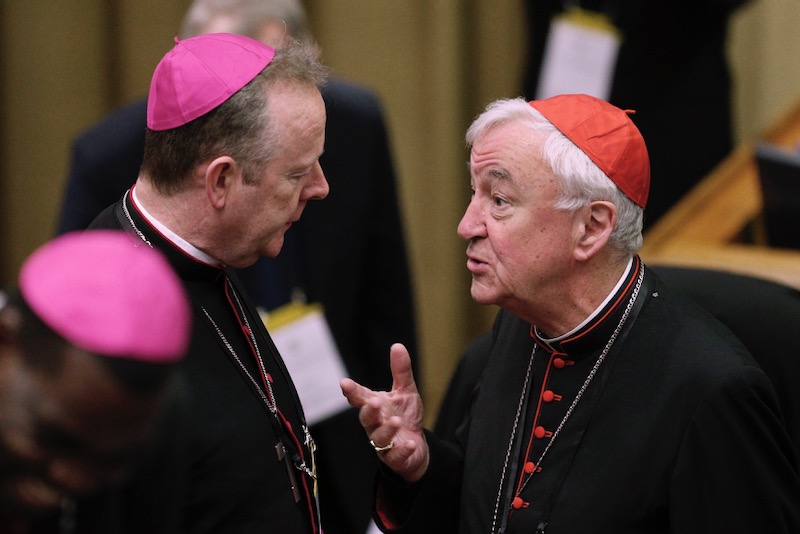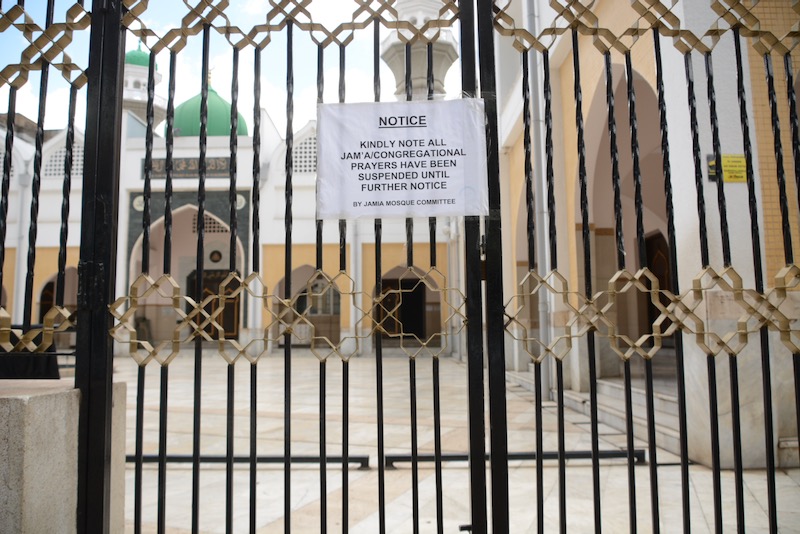The Kenyan Government on Sunday shut all churches, mosques and other places of worship in the East African nation, as Africa experienced an upsurge in coronavirus cases.
Mutahi Kagwe, Kenya’s Health Cabinet Secretary said the churches must shut in the latest list of measures the government announced after cases in the country reached 15.
Fr Richard Onyango Oduor, a Kenyan Catholic priest has been quarantined, after he tested positive to the coronavirus. He is based in Rome but was on vacation in Kenya, arriving there on 11 March from Rome. He spent time with relatives in Nairobi, before travelling to his rural home in Siaya County in western Kenya, where he presided over a burial.
The Kenyan measures include the suspension of all international flights, closure of all bars and a ban on weddings. Funerals have also been limited to 15 members of the immediate family.
“If we continue to behave normally, this disease will treat us abnormally. Behaving normally under this circumstance is akin to having a death wish,” said Mr Kagwe.
In their latest guidelines, the bishops urged Christians to follow Masses through television and radio stations.
Latest statistics indicate that there are more than 1,300 confirmed cases in Africa with nearly 40 deaths. Egypt and South Africa are leading with 294 and 274 cases respectively.
On Sunday, Rwanda went on a total shutdown after the cases reached 19.
On 16 March Ghana, with 24 cases, closed all public Masses and pilgrimages for one month. On 18 March, Uganda’s President Yoweri Museveni suspended all Sunday services, also for a month.
Meanwhile Southern African Catholic bishops have supported President Cyril Ramaphosa’s drastic measures to prevent the spread of the virus.
Bishop Sithembele Sipuka, president of Southern Africa Catholic Bishops, urged the bishops to follow government measures against the pandemic.
“Each Bishop will grant a dispensation from the normal obligations to attend Sunday Mass and the other sacramental celebrations to the elderly, the sick and children,” Sipuka said.
On 21 March Cape Town Archbishop Stephen Brislin live-streamed the Mass on the Catholic Archdiocese of Cape Town Facebook page.
“That fact that in Cape Town, for example, there is no public Mass does not mean that Mass has been stopped. On the contrary, every priest is expected to celebrate Mass [in private],” Auxiliary Bishop of Cape Town Archdiocese, Sylvester David, wrote in the diocesan bulletin on 23 March
The Jesuit Institute South Africa has suspended all its programmes until further notice.
“We are responding by taking as much as possible of our ministry online,” said Fr. Russell Pollitt, director of Jesuit Institute South Africa.
“Yes, the government has begun well. There is a sense that people are working together,” Pollitt told The Tablet. “However, I think there is still a long way to go and a lot of work to be done. We are not on a good trajectory if they don’t adapt more stringent measures.”
Nationally, Pollitt said, people are not taking the social distancing seriously. “I also think many people are still not aware of just how dangerous this virus is and how quickly you can get it. Churches, shopping malls, restaurants are all high-risk places to go and I’m not sure if we have realised that. I also think some church authorities are not helping and seem to be in denial about the seriousness of the problem by continuing to have services,” he said.
In Zimbabwe, Catholic Bishops said in a statement:
“At present, prevention proves to be a fundamental weapon, to fight the virus and it is even more essential in our country where hospital structures are not fully-equipped to support the influx of a great number of seriously ill people.”
On 17 March Zimbabwean President Emmerson Mnangagwa issued a ban on all public gatherings with more than 100 people.



 Loading ...
Loading ...